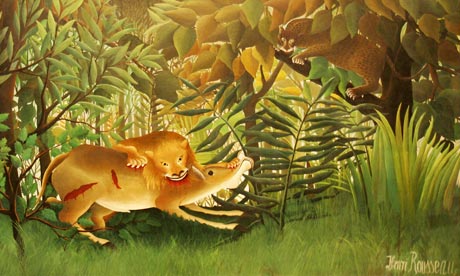
After knocking back the Sambuca-style soundbites of David Shields's Reality Hunger it was a relief to sup on Maggie Gee's new memoir My Animal Life, a far more quaffable tonic for both the aspiring and published writer.
Who is Maggie Gee? It's a question I'm surprised people still ask: back in 1983, she was one of Granta's original Best Of Young British (along with McEwan, Ishiguro, Boyd, Amis et al); her 2003 novel The White Family was greeted with an Orange award shortlisting; she was the first female chair of the Royal Society of Literature in 2004; each of her 12 books has met with critical acclaim. So why does her name tend to prompt either a blank stare, or a quiet no-I-haven't-read-her-actually? It's an issue she addresses in her memoir: fearing she didn't play the game when she was younger by being seen at the right literary parties, she wonders whether she should have attended to a remark her publisher at HarperCollins made in 1995, five novels into her career. "I love your work," he said, "but I was surprised, when I asked around the office, some people hadn't heard of you."
My Animal Life examines the rejection, failure and iron-clad determination that harden to form the kernel of a writer's success. Its crux is the juxtaposition of her aptitude for writing with her "animal self"; her physical needs. Her attempts to get published and, more terrifyingly, to stay published (she fears no longer "being a writer") provide invaluable advice for the reader. For example: six novels in, she switches agent, despite realising immediately that, personally, she and her new representative are "ill-assorted". It's this decision that results in a career nadir: rejection, not just by her publisher HarperCollins, but by almost "every mainstream literary publisher in London". Her searing honesty offers insight into an author's ego ("They turned it down … I was Maggie Gee! On my sixth novel … ") and the niggling worry that her writing isn't ordinary, "not universally pleasing or loveable", so needs the "armour-plating of technique". Meanwhile these neuroses are tempered by the constants of the "animal" body, the idea that if you listen to your body, even just by taking a swim every morning, you will be saved.
Of course she is Maggie Gee and everything turns out alright in the end. But along the way, this creep through the "literary jungle" – with its population of editors, publishers, agents, booksellers, critics – is as instructive as my well-thumbed Paris Review compendiums. There is only the work, she concludes. "Breathe, concentrate, find the nerve."
In no way have I done the many threads of My Animal Life justice: the sections on her relationship with her violent father are the subject of another blog altogether. But if you're a Maggie Gee virgin, or a wannabe author, my advice is to absorb this masterclass on a writer's life before working your way backwards through her oeuvre. And if you're already a fan, which is your favourite? For me, aside from My Animal Life, it's My Cleaner, whose sequel, My Driver, has just joined the ever-rising pile beside my bed.

